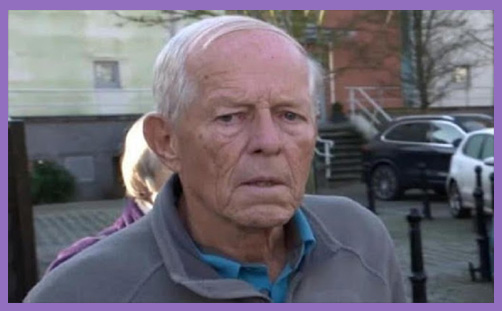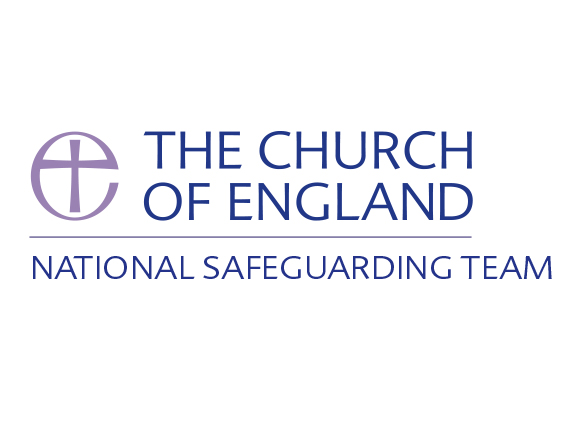
The last few years have seen a variety of reports on the issue of sexual abuse of children by clergy. They have normally taken a church-centered approach. They answer questions that many people are asking. How can we make the future better or what procedures would make child-abuse less likely to happen? To use a metaphor to describe these reports, they are often written from the tower of a castle, looking down on a countryside which has been overrun by an enemy invasion. The damage has been done but the rhetoric is often all about rebuilding houses, but seldom about the healing of shattered lives of those who used to live in them.
The new report by Yvonne and David Shemmings entitled Sexual Abuse by Clergymen in the Diocese of Chichester is refreshingly different from all that has gone before. It is an attempt to understand the phenomena of abuse from new perspectives. There is no sense that it has been written to protect the Diocese or to downplay the seriousness of what has happened in this particular area of the country. It is informed by psychological, sociological and theological insight. Above all it makes a real attempt to listen to survivors and to record their experiences of abuse and what followed.
The report is over 100 pages long and has been summarised in this week’s Church Times by Hattie Williams. One special value is in the way that it conveys the feelings and perspectives of the abused, sensitively revealing what it is like to be a target of the grooming techniques of the abusers. In this short post I have had to make a choice about the material I can discuss. So, what I write is not in any way an attempt to make a summary of the whole report. Rather, I have focused on two themes within it that have attracted my attention. The first is the issue of the bystander in the accounts of abuse. One of the issues that apparently came up as the police force began to firm up their enquiries was the question of the possible existence of an organised paedophile network within the Diocese. This idea was never proved but there seems to have been evidence that offending clergy knew each other and some instances shared their victims. Other non-offending clergy appear to have known what was going on and in effect they seem to have provided a kind of buffer of protection for the perpetrators. Sometimes the compliance of a non-offending member of the clergy was obtained by the threat of what we would consider to be blackmail. The perpetrator was saying to the bystander, I won’t share your secrets if you hide mine. Even though the abuse of children was and is a criminal offence, a clergyman (bystander) might, for example, be accused of having (legal) homosexual activity brought to light. He was of course vulnerable, as a member of the clergy, to such threats of exposure. One story that is told in the report is of two clergymen in a room with a male child victim. The perpetrator was testing the reaction of the bystander to his activity of gradually upping the level of abuse. If he was able to cross the boundary from physical touching to actual (criminal) abuse without the witness protesting, then he had been successful in making his colleague a colluding accessory to a crime. The dynamics of sexual abuse in the diocese involved these and other thoroughly unhealthy dynamics. There seems to have been, alongside abusive acts, a great deal of secrecy, collusion, blackmail and deceit. These caught up in their tentacles many who had nothing to do with the criminal activities of the actual abusers.
To say that the Diocese of Chichester appears to have been, in certain areas. a place where one used to find corrupting and corrupted morality seems not to be an overstatement. One of the observations I made during the Chichester IICSA hearings last year, was the surprising fact that some of the convicted offenders had been ordained for 40 years, only to be exposed after retirement. Without knowing any of the details one must surmise that each perpetrator had found effective ways of hiding his criminal activities. Whether it was through acts of deliberate deceit or through coercive persuasion of some kind, the perpetrators made sure that bystanders, otherwise innocent, were to some extent complicit in these acts of extreme evil. Whatever the rights and wrongs of this bystander role, the diocese must still be feeling the effect of this extensive corrupting contagion, affecting an unknown but significant number of its clerical members.
A corrupt theological notion, one which facilitated some of the perpetrators in continuing their activities without faltering, was a distorted understanding of forgiveness. The Calvinist version of the teaching about forgiveness was summarised in the IICSA evidence by Bishop Wallace Benn. This emphasis, no doubt, was shared by many from the same churchmanship background in the diocese. In summary, classical Protestant teaching declares that the suffering of Christ on the cross removes all our guilt. There is no sin that cannot be forgiven. A version of this teaching which destroys its moral validity goes on to state that this doctrine also teaches that all the consequences of sin are also somehow automatically wiped out. Thus, there is the idea that one can commit acts of enormous harm against others, without accepting any responsibility for seeking healing for these who are victims of one’s wrongdoing. This kind of cheap forgiveness makes a nonsense of justice, love and the need to uphold the weaker brother or sister. There also appears to be an Anglo-Catholic version of this same teaching of forgiveness without cost. There are many sins which need more than the repetition of a ‘penance’. Child abuse has effects which continue for decades and which may damage generations yet unborn.
The personality of Bishop Peter Ball looms in the background of the Shemmings report. It is not only because of the way that he himself was responsible for numerous acts of abuse against young men, but his behaviour directly and indirectly seems to have loosened the atmosphere of moral integrity within the diocese. Whether clergy knew anything about his nefarious activities or not, it seems likely that Ball communicated a tolerance of ‘naughty’ behaviour to at least some of his clergy. In the case of Vickery House, Ball admitted in a letter in 1984 that something inappropriate had taken place between House and a young man but nothing further seems to have happened in this case. It is suggested that House and Ball preyed on the same victims in at least three instances. Certainly the police were not informed. Ball was good at using exculpatory methods to justify his behaviour and no doubt erring clergy under his oversight learnt to deal with their actions in similar ways.
There is a great deal of wise and instructive detail in this Shemmings report. By taking the evidence of survivors and putting that at the centre of the analysis, we are allowed to glimpse some of the dynamics of abuse both from the perspective of the perpetrator and the survivors. I hope that Surviving Church readers take the trouble to read the whole text for themselves. It is a study that allows us to think about the phenomenon of abuse from a new perspective. It has nothing of a bias that wants to privilege the perspective of the organised church leadership. Nor is it in any way trying to attack or undermine the institution. It possesses that rare quality – a study that lifts the discussions about abuse to a level of scholarly interpretation. The Church should be encouraging further attempts to understand what is going on as it seeks to deal with the terrible legacy of decades of abuse by its own clergy. https://cofechichestersafeguarding.contentfiles.net/media/documents/document/2019/08/Shemmings_Report_ib4lHC8.pdf








